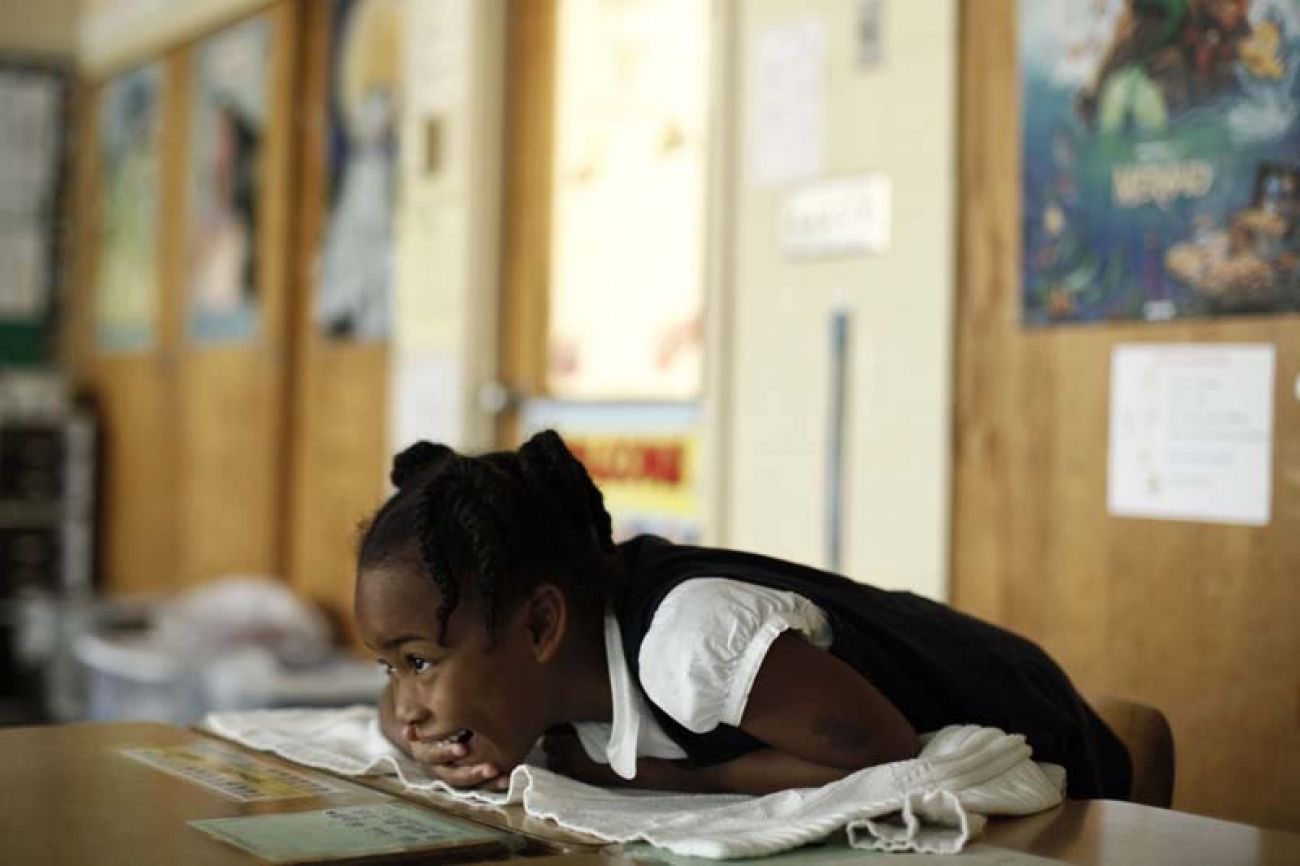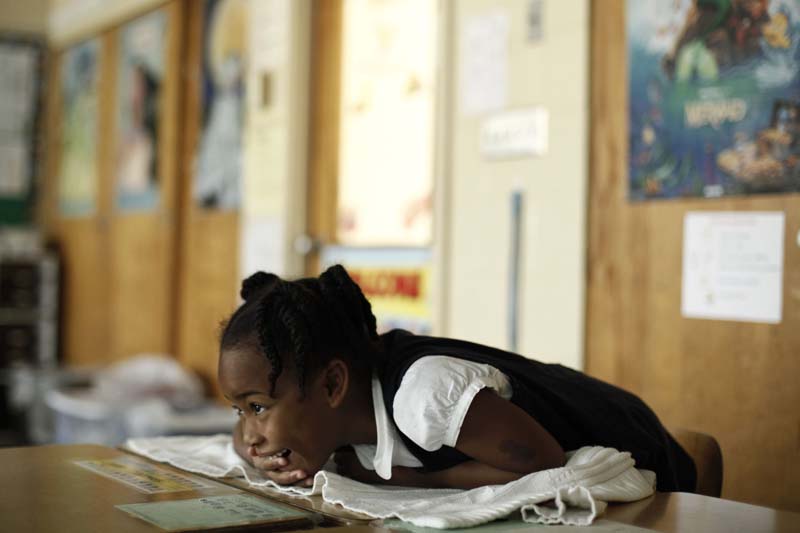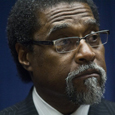Why Detroit’s new school leadership won’t much matter


Detroit saw three sweeping governance changes to the Detroit Public Schools’ power structure in the past decade. And last week, DPS got its 10th leader since 1999 with the appointment of yet another emergency manager, Darnell Earley. At least one more idea for changing the chain of command is currently on the table.
The ongoing search for the best leadership hierarchy for Detroit's schools is an important conversation.
And an ineffective one.
Michigan is having the wrong discussion regarding Detroit’s public schools, experts and teachers say. When it comes to Detroit schools, arguably the worst in the nation, the current conversation needs to center around implementing educational strategies that work in the classroom, rather than another round of arguments over who should be in charge, these school experts say.
Continuously low test scores and student enrollment declines have shown that changing the governance model - shifting control from an elected school board to mayoral or state oversight - has done virtually nothing to improve the schools in Detroit. After nearly two decades of state interventions, Detroit’s troubled school district has been transformed into three school systems, all with their own challenges ‒ DPS, a large and growing network of charter schools, and the Education Achievement Authority, the statewide reform district that operates 15 low-performing schools in the city.
“I don’t think a governance fix is what’s going to fix Detroit’s schools,” said Tonya Allen, president and CEO of the Skillman Foundation and co-chair of the newly created Coalition for the Future of Detroit Schoolchildren. The coalition includes local leaders and educators and formed in December with a 90-day mission to make recommendations on Detroit schools to the mayor, governor and legislature about school governance, finance and academic expectations.
“Many things work. Our biggest barrier is stability,” Allen said. “We haven’t stuck with anything. But it’s difficult to do any reforms when you have screwed up governance.”
Change change again
Excellent Schools Detroit, an advocacy group with a representative on the coalition, has suggested that Mayor Mike Duggan be involved in creating a portfolio system in Detroit that would give the mayor control over key operations such as transportation and enrollment in Detroit, for DPS, the EAA and charters.
But Duggan has declined to say publicly whether he wants control over the schools, to play a significant role or remain on the sideline. Perhaps in a show of the power being invested in the coalition, his office referred questions about the future of Detroit school reform to Allen.
Any power structure change that the coalition, state legislature and governor's office is contemplating for Detroit's schools is, at best, another opportunity to do something sustainable to improve education, studies show. But that power change - as with any governance structure - has little impact on learning unless accompanied by rigorous, proven educational methods.
For instance, reseachers at the Institute on Educational Law and Policy at Rutgers University in Newark studied governance models in nine cities, including Detroit, through 2010. The researchers were unable to conclusively tie any specific form of governance to improved student achievement, concluding that quality reforms in the classroom impact achievement regardless of the governance model.
Improvement is possible in low-achieving schools. The 2014 Bridge series, “The Smartest Kids in the Nation” illustrated how schools in Massachusetts, Tennessee, Florida and Minnesota have catapulted past Michigan academically or made huge academic gains on the National Assessment of Educational Progress (NAEP) test, also known as the Nation’s Report Card.
The series showed how sustained, evidence-based policies, such as high academic standards, extensive early childhood education programs and higher investment in low-income, low-achieving urban schools can reap rewards.
In Detroit, a majority of students now attend charter schools, which on average achieve at about the same rate as the traditional public schools.
Tom Watkins was the state superintendent and, by law, a member of the reform Detroit school board in the years following the watershed 1999 state takeover of DPS. During those six years, scores on the state standardized MEAP test inched up growth, but was not sustained. Since then, Detroit students’ scores on the NAEP have remained the worst among 21 large urban cities since the state appointed the first of four emergency managers for DPS in 2009.
If the adults at the table ‒ from educators to the coalition, mayor, legislature and governor ‒ are not focusing on the core issues of teaching and learning strategies, they’re not talking about improving schools, Watkins said. Improving Detroit’s schools is not about who’s in charge, said Watkins, now president and CEO of the Detroit Wayne Mental Health Authority.
“We’re close to two decades in with Detroit,” Watkins said. “Would anyone say we’ve stopped the hemorrhaging? It’s a lot easier to balance the books. It’s hard to educate children. Real change is required.
“I have faith the recommendations that come down from the coalition will be an educational grand bargain and that maybe the emergency manager is a temporary fix that’s a prelude to hopefully a long term solution that puts teaching, learning and children over power, politics, control and adults.”
Here, there everywhere
The Rutgers study,”Governance and Urban School Improvement: Lessons for New Jersey From Nine Cities,” examined school reforms in Baltimore, Boston, Cleveland, Chicago, Detroit, Hartford, New York, Philadelphia, and Washington, D.C. The researchers concluded that “effective governance is necessary, but not sufficient, to move school reform.” Researchers found the adoption of a new governance model brought a higher level of public commitment to education, more public and private funding, “and more attention to successes.”
But not necessarily better schools.
Urban areas such as Detroit need to concentrate on what is generally known about school reform ‒ that it requires effective strategies at the building level, “strong leadership by the principal; the recruitment, retention and support of high quality teachers and administrators; as well as addressing the myriad problems outside of the schools related to poverty and its effects are also vital to urban school improvement,” the research found.
Still, Michigan has tried over and over again to change the governance of DPS, espousing the changes as a solution to power struggles, inept leadership and financial difficulties as well as the precursor to improved achievement.
In 1999, the state legislature passed the Michigan School Reform Act that replaced the elected Detroit school board with a board that was appointed by the mayor and included the state superintendent (or a designee).
The law gave Detroit residents the opportunity to vote to return to an elected board after five years. By 2005, the state-run DPS overspent the budget by $200 million, and resolved it with a bond to avoid deficit. Detroiters did vote to turn the schools back over to an elected board. A new elected school board was seated in 2006 and selected a new superintendent in 2007 - Connie Calloway, a leader from the tiny school district of Normandy, Missouri.
A deficit began to accrue again, fueled by a historic student enrollment decline and school closures. That deficit climbed to more than $300 million by 2009. And in a third governance structure change in a decade, Gov. Jennifer Granholm appointed the first emergency financial manager to take power over the budget from the elected board.
Every few years as the leadership and governance structure have changed, so have classroom reforms ‒ reading programs have come and gone, after school tutoring programs came and went. Now community partnerships that bring social services into buildings along with after-school sports, art and music is the reform de jour.
A new chief
Last week, Gov. Rick Snyder appointed Darnell Earley, former emergency manager in Flint, to be the fourth emergency manager over DPS. He, too, said finding ways to improve achievement will be key.
On the heels of that appointment, state Rep. Sherry Gay-Dagnogo (D-Detroit) led a delegation of state legislators on a tour of Detroit schools. A former DPS teacher, she said teachers and students showed off new improvements in instruction.
Gay-Dagnogo, who is on the Coalition for the Future of Detroit Schoolchildren and favors an elected school board form of leadership, said improving education will come when academic policy aligns with leadership decisions.
"The primary things we're aiming at are academic solutions,” she said. “Those have to be afforded by finances and governance that allow those to be put in place. None of these conversations are mutually exclusive."
Gay-Dagnogo, who is on the Coalition for the Future of Detroit Schoolchildren, said the next chapter for schooling in Detroit must be to rally around specific best teaching practices.
If school improvement in Detroit is a chicken-or-egg debate ‒ what needs to change first, governance or classroom practices? ‒ schooling should take priority in the discussion, said Stephanie Griffin, one of two classroom teachers on the 31-member coalition.
A 10-year veteran, Griffin teaches at Brenda Scott Academy, an EAA school and has taught in charters. In her view: students need to learn to read by third grade; the same rigorous content should be used in all schools, and school leaders need to solicit input from teachers and also reduce and cap the amount of time spent on standardized tests.
“Solving every problem in education in Detroit? I don’t think that’s what our goal is ‒we’re more realistic than that,” Griffin said of the coalition’s work. “Our main concern is improving education for the children of Detroit. That’s what needs to finally happen.”
Bridge Magazine is convening partner for the Detroit Journalism Cooperative (DJC), comprised of five nonprofit media outlets focused on the city’s future after bankruptcy. The group includes Michigan Radio, WDET, Detroit Public Television and New Michigan Media. Support for the DJC comes from the John S. and James L. Knight Foundation, Renaissance Journalism’s Michigan Reporting Initiative and the Ford Foundation.
See what new members are saying about why they donated to Bridge Michigan:
- “In order for this information to be accurate and unbiased it must be underwritten by its readers, not by special interests.” - Larry S.
- “Not many other media sources report on the topics Bridge does.” - Susan B.
- “Your journalism is outstanding and rare these days.” - Mark S.
If you want to ensure the future of nonpartisan, nonprofit Michigan journalism, please become a member today. You, too, will be asked why you donated and maybe we'll feature your quote next time!
 Through several leadership changes and emergency manager appointments over nearly two decades, Detroit students continue to lag behind students at other big-city schools.
Through several leadership changes and emergency manager appointments over nearly two decades, Detroit students continue to lag behind students at other big-city schools. Tonya Allen
Tonya Allen Tom Watkins
Tom Watkins Darnell Earley
Darnell Earley Sherry Gay-Dagnogo
Sherry Gay-Dagnogo